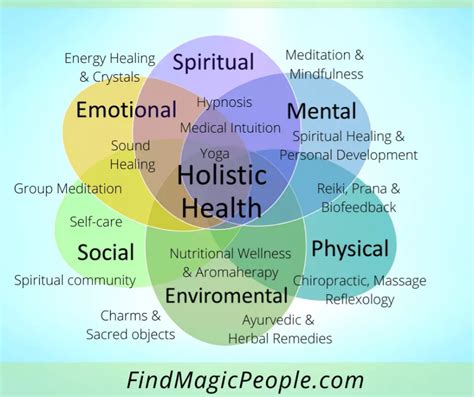Optimize men’s natural testosterone for peak performance & vitality?

Unlocking Your Full Potential: The Power of Natural Testosterone
Testosterone, often hailed as the cornerstone of male vitality, plays a crucial role far beyond just muscle mass and sex drive. Optimal levels of this vital hormone are intrinsically linked to energy, mood, cognitive function, bone density, and overall metabolic health. In an increasingly demanding world, many men find their natural testosterone levels dipping, leading to a cascade of undesirable symptoms. The good news? You can proactively optimize your body’s own testosterone production through natural, sustainable strategies.

Why Optimal Testosterone Matters for Men
Having healthy testosterone levels is foundational for men’s well-being. It contributes to:
- Enhanced Energy & Stamina: Combats fatigue and boosts endurance.
- Improved Mood & Cognition: Reduces symptoms of depression, enhances focus and memory.
- Increased Muscle Mass & Strength: Supports protein synthesis and physical performance.
- Healthy Libido & Sexual Function: A key driver of male reproductive health.
- Stronger Bones: Essential for maintaining bone density and preventing osteoporosis.
- Better Body Composition: Helps reduce body fat and maintain a lean physique.
Recognizing the signs of suboptimal testosterone, such as persistent fatigue, low libido, mood swings, or difficulty building muscle, is the first step towards taking control of your health.
The Pillars of Natural Testosterone Optimization
1. Nutrition: Fueling Your Hormones
What you eat directly impacts your hormone production. A balanced diet rich in whole foods is paramount.
- Healthy Fats: Essential for hormone synthesis. Include sources like avocados, nuts, seeds, olive oil, and fatty fish (omega-3s).
- Quality Protein: Provides amino acids necessary for muscle repair and overall health. Lean meats, eggs, dairy, and legumes are excellent choices.
- Complex Carbohydrates: Provide sustained energy and prevent cortisol spikes. Opt for whole grains, fruits, and vegetables.
- Key Micronutrients:
- Zinc: Found in oysters, red meat, nuts, and beans. Crucial for testosterone production.
- Vitamin D: The “sunshine vitamin.” Get exposure to sunlight or supplement. Found in fatty fish, egg yolks, and fortified foods.
- Magnesium: Supports sleep and hormone regulation. Found in leafy greens, nuts, and seeds.
- Limit Processed Foods & Sugars: These can contribute to inflammation and disrupt hormone balance.

2. Exercise: Move Smart, Not Just Hard
Physical activity is a powerful testosterone booster, but the type and intensity matter.
- Resistance Training: Lifting weights or bodyweight exercises (3-4 times per week) has been consistently shown to increase testosterone. Focus on compound movements.
- High-Intensity Interval Training (HIIT): Short bursts of intense exercise followed by brief recovery periods can also be effective.
- Avoid Chronic Overtraining: Excessive, prolonged cardio or insufficient recovery can elevate cortisol, which can suppress testosterone. Listen to your body and prioritize recovery.

3. Sleep: Your Hormonal Recharge
Sleep is when your body repairs and regenerates, including hormone production. Chronic sleep deprivation is a major testosterone suppressor.
- Aim for 7-9 Hours: Consistent, high-quality sleep is crucial.
- Prioritize Sleep Hygiene:
- Establish a regular sleep schedule.
- Create a cool, dark, quiet bedroom environment.
- Avoid screens and stimulating activities before bed.
- Limit caffeine and alcohol, especially in the evening.

4. Stress Management: Taming the Cortisol Beast
Chronic stress leads to elevated cortisol, a hormone that directly competes with testosterone and can suppress its production.
- Mindfulness & Meditation: Regular practice can significantly reduce stress levels.
- Deep Breathing Exercises: Simple yet effective for immediate stress reduction.
- Hobbies & Relaxation: Engage in activities you enjoy to unwind and de-stress.
- Nature Exposure: Spending time outdoors can lower stress and improve mood.
5. Lifestyle Factors: Beyond the Basics
- Maintain a Healthy Weight: Excess body fat, particularly around the midsection, can convert testosterone into estrogen.
- Limit Alcohol Consumption: Excessive alcohol can impair testosterone production.
- Avoid Endocrine Disruptors: Be mindful of plastics (BPA, phthalates), pesticides, and certain personal care products that can interfere with hormone function.

Embrace a Holistic Approach for Sustainable Results
Optimizing natural testosterone is not about quick fixes; it’s about adopting a holistic lifestyle that supports your body’s intrinsic ability to thrive. By integrating these nutritional, exercise, sleep, and stress management strategies, you can unlock renewed energy, sharper focus, improved strength, and a greater sense of well-being.
Remember, consistency is key. Small, sustainable changes compounded over time yield the most significant and lasting results. If you suspect significantly low testosterone, always consult with a healthcare professional to rule out underlying conditions and discuss personalized treatment options.









